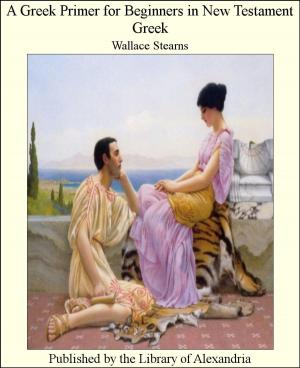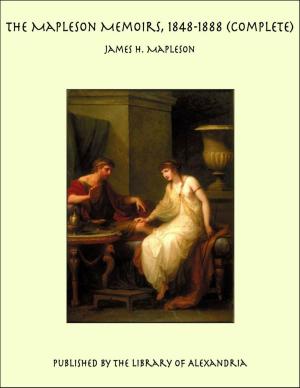| Author: | Tertullian | ISBN: | 9781465555151 |
| Publisher: | Library of Alexandria | Publication: | March 8, 2015 |
| Imprint: | Language: | English |
| Author: | Tertullian |
| ISBN: | 9781465555151 |
| Publisher: | Library of Alexandria |
| Publication: | March 8, 2015 |
| Imprint: | |
| Language: | English |
THE VIRTUES OF THE CHRISTIANS. But the sect, you say, is punished in the name of its founder. Now in the first place it is, no doubt a fair and usual custom that a sect should be marked out by the name of its founder, since philosophers are called Pythagoreans and Platonists after their masters; in the same way physicians are called after Erasistratus, and grammarians after Aristarchus. If, therefore, a sect has a bad character because its founder was bad, it is punished as the traditional bearer of a bad name. But this would be indulging in a rash assumption. The first step was to find out what the founder was, that his sect might be understood, instead of hindering inquiry into the founder’s character from the sect. But in our case, by being necessarily ignorant of the sect, through your ignorance of its founder, or else by not taking a fair survey of the founder, because you make no inquiry into his sect, you fasten merely on the name, just as if you vilified in it both sect and founder, whom you know nothing of whatever. And yet you openly allow your philosophers the right of attaching themselves to any school, and bearing its founder’s name as their own; and nobody stirs up any hatred against them, although both in public and in private they bark out their bitterest eloquence against your customs, rites, ceremonies, and manner of life, with so much contempt for the laws, and so little respect for persons, that they even flaunt their licentious words against the emperors themselves with impunity.
THE VIRTUES OF THE CHRISTIANS. But the sect, you say, is punished in the name of its founder. Now in the first place it is, no doubt a fair and usual custom that a sect should be marked out by the name of its founder, since philosophers are called Pythagoreans and Platonists after their masters; in the same way physicians are called after Erasistratus, and grammarians after Aristarchus. If, therefore, a sect has a bad character because its founder was bad, it is punished as the traditional bearer of a bad name. But this would be indulging in a rash assumption. The first step was to find out what the founder was, that his sect might be understood, instead of hindering inquiry into the founder’s character from the sect. But in our case, by being necessarily ignorant of the sect, through your ignorance of its founder, or else by not taking a fair survey of the founder, because you make no inquiry into his sect, you fasten merely on the name, just as if you vilified in it both sect and founder, whom you know nothing of whatever. And yet you openly allow your philosophers the right of attaching themselves to any school, and bearing its founder’s name as their own; and nobody stirs up any hatred against them, although both in public and in private they bark out their bitterest eloquence against your customs, rites, ceremonies, and manner of life, with so much contempt for the laws, and so little respect for persons, that they even flaunt their licentious words against the emperors themselves with impunity.















